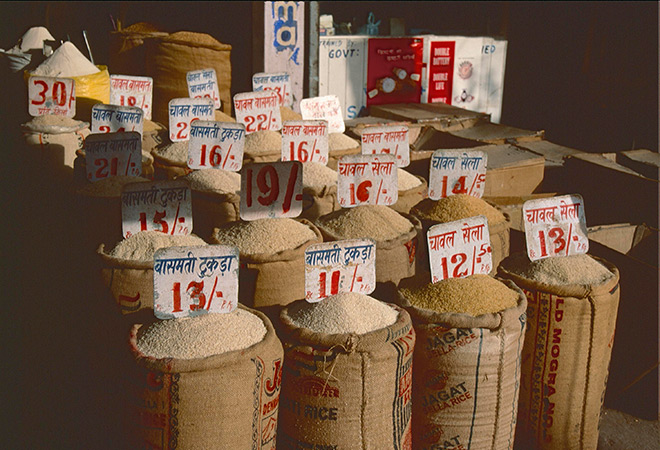This article is written by Smaranika Sen from Kolkata Police Law Institute. This article exhaustively deals with the urgent need for an Amendment of the Essential Commodities Act.
Table of Contents
Introduction
Various legislations were made prior to independence and immediately after independence. It had been observed that quite a huge number of legislations were made long back. Over time, the aims, objectives, and the provisions that were in the Act became irrelevant or did not suffice the present need of society. At this very time, an Act needs Amendment. An Act also can be amended if it is found that the provisions in the Act are somehow going against the public policy or are unconstitutional. The Essential Commodities Act, 1955 contains some provisions which were believed to be not beneficial in the present situation. This was amended in the year 2020. According to a survey, it was observed that 63% of the farmers accepted the Amendment and the others were not quite happy with it. Through this article, let us analyse whether the Amendment was required or not. We will also try to analyse if any further Amendments are required to be made.
The Essential Commodities Act: an overview
The Essential Commodities Act was made with keeping in mind the everyday essential needs of human beings. In simpler words, essential commodities are those things that are required to sustain a normal life. The Act mainly states the price and availability of such essential commodities. It further regulates the price, production, and demands of those essential commodities.
Historical background
The origin of this Act dates back to 1939. During this time, the Government of India made certain rules and regulations regarding the production, supply, etc of certain commodities under the Defence of India Act, 1939. However, the Act was seized in 1946. Later, it was observed that there was a need for legislation that would regulate the production, supply, distribution, pricing of such essential commodities. This led to the formation of the Essential Supplies (Temporary Powers) Act, 1946. With the Third Constitutional Amendment, the above-stated Act was replaced by the Essential Commodities Act, 1955.
Nature and scope
The Act extends to the whole of India. The main object of this Act was to ensure that the essential commodities were available to the consumers and they were protected from any exploitation of unscrupulous traders. As already stated above, the Act regulated the production, pricing, supply, etc of the essential commodities. The Act also ensures equal distribution of the commodities. According to the Essential Commodities Act 1955, the essential commodities are:
- Drugs, the term includes any kind of medicines for internal or external use irrespective of human beings, animals. It also includes any such substances that are intended to be used in diagnosis, treatment, mitigation, prevention of any diseases, disorders, etc. It further includes any such substances which are intended to affect the structure of the human body d or for the destruction of vermin or insects which cause diseases in human beings and animals, which are intended for use as a component of a drug, etc. And all other things which are mentioned under the definition of drugs in the Drugs and Cosmetics Act, 1940.
- Fertilizers can be organic, inorganic, or mixed.
- Foodstuffs, including edible oils.
- Hank yarn, made wholly from cotton.
- Petroleum and its products.
- Jute, both in raw and textiles.
- Seeds of fruits, vegetables, cattle fodder, jute, cotton.
Why was the Essential Commodities Act amended
The Essential Commodities Act 1955 was very recently amended in the year 2020. The new Bill’s main aim was to remove certain items from the list of essential commodities. The Amendment also aims to remove fears of private investors of excessive regulatory interference in their business operations. The Act, in 1995, was legislated when there was a scarcity of food in India. There was a city of foodstuffs due to very low levels of food grain production. The country was mainly dependent upon imports and assistance from various other countries in order to feed the people living in it. The Act was enacted in order to prevent hoarding and black marketing of foodstuff. However, the situation has changed quite a lot now. The Ministry Of Consumer Affairs, Food And Public Distribution had clearly stated that the production of wheat, rice, pulses had increased and thereby India has now become an exporter of several agricultural products. The year 2020 saw the deadly pandemic. It changed various perceptions not only in the life and working procedures of offices, colleges, schools, companies, businesses, etc but also in the administration system of various governmental policies or legislation, etc. Similarly, it was observed by the competent authority that the essential commodities regarding the ongoing pandemic required certain additions and subtractions in the list. Therefore, the Act was amended. This was one of the main reasons for the Amendment of the Essential Commodities Act.
What are the changes brought
The Amendment stated that the stock holding limit on commodities will now be only imposed under exceptional circumstances like natural calamities or any national emergency or famine with a surge in prices. It further stated that processors and value chain participants will be exempted from the stock limit. The Amendment also removed certain items like onion, oil, potato from the list of essential commodities. Removing such items from the essential commodities list indicates that now the government has the power to regulate its supply or regulate such items under extraordinary circumstances like famine or war. It also stated that any order for regulating stock limit for any agriculture procedure will only be issued under the stated Act if there is a hundred percent increase in the retail price of horticulture produce or 50% increase in the retail price of non-perishable agricultural foodstuffs.
Can the government bring in such an amendment
The Essential Commodities Act gives power to the government to add or subtract any items from the list of essential commodities in the Schedule. Lately, due to the pandemic, face masks and sanitisers have also been included in the list. The government also has the power to fix a stockholding limit for any commodity for a fixed period if it had been observed that a price of a certain commodity is going up due to short supply. There have been numerous times when governments in the past have recommended removing or adding certain items to the list. In 2001, various chief ministers in a conference call by the union government recommended that all the restrictions under the stated Act should be abolished and movement of the agricultural goods should be freed. Between 2002 and 2006, the number of items from the essential commodities lists reduced to 7 from 70. In 2016, the ruling government removed the licensing requirements, stock limits, and movement restrictions on certain food items, etc.
Arguments in favour
Various experts state that the Amendment has been beneficial to the farmers. According to them, the provisions which have been inserted in the Act through the Amendment will boost the farmers’ income. The farmers’ income will be increased as they will be able to sell their products everywhere irrespective of whether it is a local Mandi or not. This will lead the large companies and corporations to buy the crops directly from the farmers and thereby the farmers will get remuneration.
The government stated that over time, India has become surplus in almost every agricultural commodity. Therefore, the farmers have not been able to get better prices because of ill storage conditions in cold storage, warehouses, processing, etc. They further stated that an economic survey of the year 2019 and 2020 observed the stock limits on commodities under the Essential Commodities Act neither brought down the prices nor reduced volatility. Thus, the Amendment was necessary.
Arguments against
The Amendment of the Essential Commodities Act came along with the other two Amendments of the farmers’ ordinances. There were very huge protests from farmers all over the country regarding these ordinances. Various eminent personalities stated that the Amendments in the Essential Commodities Act may lead to an increase in rural poverty, thereby creating an adverse impact on the public distribution system. They further stated that food items like pulses, onions, and edible oils are the basic requirements of every human being and if the government would not regulate the supply of such food items there are very high chances of hoarding them. Some eminent personalities also stated that the bar of stock holding limits in the provisions of the Essential Commodities Act was too low and it will create a tyranny among the government officials.
The forum of traders’ organisations stated that the Amendment will enhance the big businessman to hoard essential commodities which will eventually lead to rising prices. The opposition parties claimed that the Amendments were rushed through, there were no such property discussions in the houses. They further claimed that the Amendment regarding the Essential Commodities Act conflicted with the constitutional rights of the state. They also agreed on the fact that the new provisions were only beneficial to the hoarders and the black marketers.
Present scenario
In India, the dreadful effect of pandemics started in 2020. With several months of lockdown and people living in quarantine, slowly and steadily people started to get back to their normal life. Unfortunately, the pandemic was not yet over. The second wave of the pandemic was witnessed in the very early of 2021. The second wave created more chaos than the first wave. It showed that the healthcare system was unable to provide oxygen cylinders or beds or remdesivir injections etc which when needed for the human life to survive. It was a terrible scene that was witnessed by people all over the country.
Now the Amendment which was made by the Ministry of Health and Family Welfare in 2020 included the medical devices under the ambit of drugs in Section 3b of the Drugs and Cosmetics Act 1940 and we know that drugs are one of the essential commodities listed under the Essential Commodities Act. Despite having such legislation, it was observed that there was the hoarding of oxygen cylinders, pulse meters etc. There was even black marketing of various medical devices which were required utmost then. It was observed that the Delhi Police arrested businessman and restauranter black marketing and coding of oxygen concentrators during the second wave of the pandemic. If it is looked at from the social perspective, we can see that the people who are affected due to such black marketing of essential commodities are the people who belong from the economically weaker background. They do not have enough money to buy oxygen cylinders or medical drugs or other necessities. It is leading to the exploitation of people’s lives, especially from weaker economic backgrounds. There have been many other instances also similar to this. All these incidents show that there is an urgent need to amend the Essential Commodities Act.
Problems of the Act and solutions
The vital problem is that the Essential Commodities Act has no such punishment concerning black marketing or hoarding. It doesn’t support such Acts but it also does not create any punishments for them. A study shows that there have been more than 500 FIRs regarding the hoarding and black market sale of oxygen cylinders, medical drugs etc. However, nothing could be considered an offence as there is no punishment for it. Even the man who was arrested by the Delhi Police could not be charged for his Acts because of the lack of provisions in the Act.
Some competent authorities stated that people who are committing black marketing, hoarding, etc will be punished under the Disaster Management Act, 2005, Epidemic Disease Act, 1897 and Indian Penal Code, 1860, but the lack of context of medical devices had not even rendered any illumination there. It also should be taken into consideration that modification of only a definition of ‘drugs’ will not resolve the situation. The central government must make Amendments adequately to overcome the problems. Some recommendations that can be stated are that:
- Offences regarding hoarding, black marketing must be non-bailable.
- There must be fast-track courts that should be designated to deal with such matters.
- Most importantly, the prices of medical drugs on medical devices should be moderated under the Essential Commodities Act.
Conclusion
The Essential Commodities Act has been amended lately, but it seems that there are still some provisions that need urgent Amendments. One of the major modifications that are needed is to include all medical drugs and devices under the essential commodities list. Some state governments have included medical drugs and essential commodities but medical devices are still not included under it. The Act should prescribe strict punishment for those people who are violating the rules of the Act. The punishment should be reasonable enough as well as strict. The problem regarding the inclusion of basic items like edible oils, onions, pulses in the essential commodities list should once again be discussed with eminent economists or authorities in order to have a recheck of whether it is beneficial or not.
References
- https://www.business-standard.com/article/current-affairs/decoded-changes-to-essential-commodities-Act-and-why-they-are-drawing-flak-120092300448_1.html
- https://indianexpress.com/article/explained/simply-put-redefining-essential-items-6608203/
- https://www.theweek.in/news/biz-tech/2020/09/23/explained-why-essential-commodities-Act-Amendment-a-double-edged-sword.html
- https://www.mondaq.com/india/healthcare/1085336/the-essential-commodities-Act-needs-Amendments-urgently-here39s-why
LawSikho has created a telegram group for exchanging legal knowledge, referrals, and various opportunities. You can click on this link and join:
https://t.me/joinchat/J_0YrBa4IBSHdpuTfQO_sA
Follow us on Instagram and subscribe to our YouTube channel for more amazing legal content.
 Serato DJ Crack 2025Serato DJ PRO Crack
Serato DJ Crack 2025Serato DJ PRO Crack










 Allow notifications
Allow notifications


